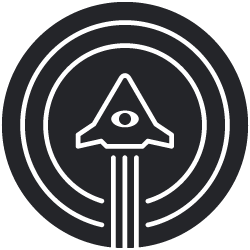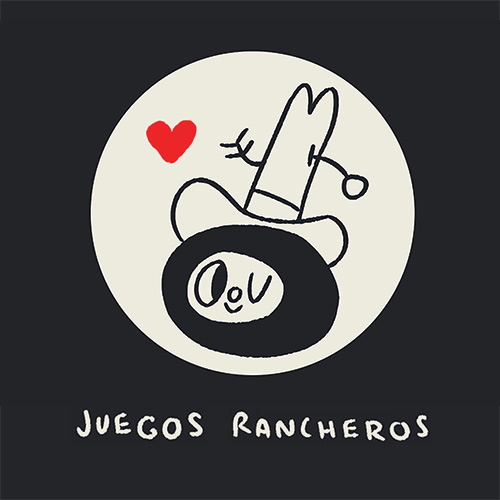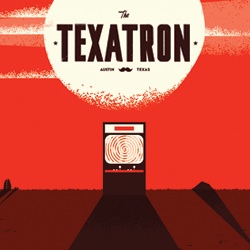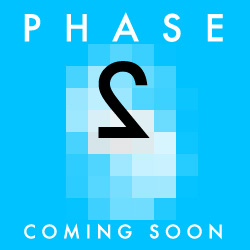RAGDOLL METAPHYSICS: CHET FALISZEK ON VALVE CULTURE, WHY AI CONSTRUCTS ARE DEPRESSING, AND THE LARGER WORLD BEHIND LEFT 4 DEAD
Chet Faliszek, along with Erik Wolpaw, came to the attention of the all-seeing eye of the internet via Old Man Murray, one of the greatest gaming websites ever to have emerged from American bedrooms. As part of OMM, Faliszek became well known among a certain sector of net culture, including the guys at Valve.
Eventually, both Chet and Erik from OMM joined Valve’s development team, and now contribute as writers and designers. More recently, Faliszek has moved into the limelight as a spokesman for the Left 4 Dead projects. I decided it was time to sit down with him and see what was making the writer from Old Man Murray tick in 2009, with his thoughts on Valve company culture, the mixed messages and missed opportunities that spawned the Left 4 Dead 2 boycott, how the world of Left 4 Dead may or may not tie in to the world of Half-Life, and playing with AI versus playing with another real human being.
So you’re now doing this designer-spokesman role for Valve? We’re seeing you standing up and talking about the Left 4 Dead games at all the cons and stuff now…
Faliszek: Oh, well, I am writing dialogue too.
How is that kind of work meted out within Valve? Were you told you had to go meet the public?
Faliszek: Well actually I wanted to complain about our PR… But, you know, Doug (Lombardi, Valve’s main marketing man) is a smart guy, right, so it was unfair for me to sit on the outside and say “hey, there’s a problem”, I had to get in there and see how it worked. Doug is one guy doing all this on his own, which puts some miles on you.
What did you want to complain about exactly?
Faliszek: Well nothing, exactly, but I was confused about some of the choices we made when we were doing the Half-Life episodes. Of course this is a very open company: so we can just go ask. I can go ask Gabe about any of the decisions made by Valve as a company. So in this case I’ll just go ask Doug some questions, and try to understand what I need to ask. And Doug’s response was “oh, someone to help, thank you.” And that was it.So no hiring of a dedicated community frontman to serve under Doug?
Faliszek: Well, we always get a member of the design team to talk at events and so on. Lots of companies hire this community manager guy who does just that community interaction stuff, but I think that just removes you from the development experience. We are able to talk about the game better as hands-on members of the team, and it helps us make a better game to go out there.
Tom Leonard, who is working on Left 4 Dead 2, he really didn’t want to go in front of the press, but when we goaded him into doing at E3, well, there’s this clarity. It really helped us. People ask you something, and you have to know your product to answer. You can always talk around this stuff, but when you’re up there and you’re being recorded, you have to choose your words well. So it’s good for us to do this stuff in public. It’s of benefit to the entire project.
So how direct is the feedback to you from the community? Do you not just tune out forum chatter as noise?
Faliszek: Well it’s a huge amount of feedback. To begin with, at Valve we all play our games a lot, and I mean everybody. I’ll log on at midnight, and there’s our chief financial officer playing. So we usually make choices because it makes sense to gamers in the first instance.
But then there’s feedback from forums and so on. You have to pay attention to that. Not having any interaction with a larger community and just making a game and throwing it out there seems odd. I am sure some people do that, but it doesn’t make sense to me, at least.
Sure, you do get a sense of insularity from a lot of developers. They’re busy people, wrapped up in their distinct projects, and not wanting to lose time to playing games or reading forums… I mean you personally are probably an unusual case, having run online websites and communities. Do you think that’s shaped your perspective?
Faliszek: Well Valve is a good fit for that perspective generally. Robin Walker is from the mod community, and has always been heavily involved with it. There are loads of guys at Valve who have been acting like that for a long time, and Valve fits that attitude as a company. If you’re not engaging with your customers directly you’re probably going to have a very different perspective on your game.
I’ve said this before, but when you first get people in to play your game you think: “Who are these morons? Can’t they just see that’s how it is supposed to work?” But you quickly learn: ten people in a row didn’t figure that out, so the problem lies with us. As for online, well, you get loads of individual threads and posts which aren’t in themselves very valuable, but if you pay attention you can see trends, you can see the big issues that are coming up. It’s very informative.
So here’s a big issue: the Left 4 Dead 2 boycott, in which people want to boycott your new game because they think Left 4 Dead needs more work. How did you guys react to that within the company?
Faliszek: We reacted. That kind of response serves to focus people’s attention. A lot of people’s attention. When there’s an announcement and there are ten different threads addressing ten different issues it’s not so clear, but when there’s a huge number of people responding to one issue, well, you know you have to take a look.
I think in this case we just didn’t message correctly. We didn’t make it clear that Left 4 Dead was still going to be updated. We just didn’t think to mention it, we were focusing on other stuff. We, internally, always knew we were going to do cool new stuff, so we didn’t say anything about the original game. Of course we also intended to get the Crash Course DLC for L4D out before E3, but some things held us up. I think if we had that out before the Left 4 Dead 2 announcement, then it would have been clearer for our intentions. Losing the opportunity to get that right hurt us, but I think we made the right choices otherwise.
DLC culture is forming into distinct threads, isn’t it? Your updates are free on the PC, while, say Bethesda’s are paid for, and often quite content heavy. Do you think people now have expectations of specific company? “Oh their stuff is free”, or “oh we pay for that DLC” kind of stuff?
Faliszek: Well at this point everyone is trying to figure out the nature of DLC. Bethesda are successful with the way they are going it, and we are successful with the way we are doing it. But then look at Left 4 Dead: we sold to more people than those people who know about Valve. Lots of 360 players will know nothing of Valve or what to “expect” from us. I mean, the Orange Box did really okay, but lots of people probably had no prior experience with us than that. They won’t know us well enough to have any consistent expectations.
The Orange Box was weird. It reminded me of 8-bit era game packs. Three Games In One! That seems really unusual in the contemporary market. Did it seem unusual now? Did it seem totally logical to create a three-game pack like that? It still seems weird, now that I think about it.
Faliszek: Well, at the start Portal wasn’t mature enough for us to be sure that we should do it like that, and Team Fortress 2 has had plenty of false starts. It kind of formed as we developed the games. There was no “this is how we do it” from the get-go, instead we’re a company that can experiment and yeah, it’s a throw-back to earlier eras, those ways of doing things. We experiment, and it pays off.
Do you think the novelty of Portal and TF2 made a big difference to how Orange Box was received? It wasn’t just another shooter in a box.
Faliszek: Well Episode Two was a big deal too. Half-Life 2 has such a huge following, so huge. I often get asked as many Episode 3 questions as I do Left 4 Dead questions. Even on its own that was a big deal.
Speaking of which… No Episode 3 answers at the moment?
Faliszek: Correct.
Okay, so you can talk about Left 4 Dead 2… did that come about from any special situation? Was it carefully conceived? Or was it just a case of what was left on the whiteboard after the first game?
Faliszek: Well, Valve have a lot of “work on what you want” going on, but when you’re in the midst of a project you don’t go and leave anyone in the lurch. We focus on what needs to be done to get a project finished. At the end of a project, though, people naturally start talking about what they’re looking at next, and at the end of shipping Left 4 Dead, the entire company was playing it 24/7. The exposure to it was large, really immersed, and so people who were working on other projects had lots of input.
So, people across the company had loads of ideas about how to improve it. There are always hazy weeks after shipping, and we just started talking. Tom Leonard drew people together and said “there’s all this talk, let’s look at this”. There were all these suggested changes that were kind of long term, and kind of depended on each other. You couldn’t do this change to the director unless you did this change to the map, and you’d need to make this change to this creature.
It was clear that a big group needed to break off and work on this, while a smaller group continued to make content for Left 4 Dead, as you’re seeing now. It grew from there. We asked: What is this? And it gestated for a few weeks before it was Left 4 Dead 2 and we said: let’s go talk to Gabe. It grew like that within what we talked about.
Do you end up creating a lot of ideas that are just abandoned?
Faliszek: In the case of Left 4 Dead 2 there was a major shared vision. Because of the work we’d already done, and the game we’d already been playing, we were able to test things immediately and prototype ideas very quickly. A day to prototype, a week to test and then three months to implement. Sure, some ideas don’t make it, but early on we were able to bounce ideas off each other and work out the major goals. And those haven’t changed.
There seems to be this enormously “Valve” way of doing things that’s running through Left 4 Dead. There’s very little exposition, as if the world itself is enough. There’s a parity with Half-Life‘s world there. You don’t explain anything, and yet all the details do seem to make up a larger story. How does that work? Is there secretly a big back story manual that we don’t get to read?
Faliszek: We have a world bible where you have to justify “if this is happening here, then how is this possible”. Communicating with everyone on your team is the main reason to do these things, so that everyone can keep track of what is happening. The storytelling comes after, in this case with the story written by myself, Erik Wolpaw and Jay Pinkerton, where we fleshed out a bunch of things and would go down a path knowing we would come back to it, and connecting the campaigns.
Connecting the campaigns was something we also intended to do, without intending to do the work of explaining that what happened in between. We had to do that, of course. It’s funny going and looking at the community threads on these things: there’s a whole bunch of people who have grasped a lot of what is going on, but are missing elements to get the whole picture. That’s been fun to watch.
So there is a larger picture for the world?
Faliszek: Yes, when we get closer to L4D2 in November, some things will come to light, things that I think will shed some light in what is going on in the world. We want to remain true to this sort of total zombie apocalypse idea, rather than have it be some localised event or mad scientist storyline. Within that world, however, there are other things happening, and I think there are going to be some surprises. That should keep people engaged.
There must be impulses to go and tell stories all the time once you’ve gone and created these worlds. The Half-Life world now seems ripe to go off and tell other stories in other directions…
Faliszek: Oh yeah, we actually internally played around with that. With Marc Laidlaw, Erik and I have talked around things in the Half-Life world, and whether any of that stuff will get to see the light of day remains to be seen. It may not. And yet the way the Half-Life world was created has been a real inspiration for Left 4 Dead. It’s a great model for allowing you freedom to do things in a world, and yet making it satisfying for the people who are playing.
Okay, moving on, Steam’s diversity has been interesting for me as a writer, the same with GoG and the other online services. I’m suddenly playing a wider range of stuff, and going back for retrospectives. Has it been good for ideas for you guys too?
Faliszek: Oh, definitely. I mean we would go to the Steam guys and they’d have some cool new games, World Of Goo or whatever. Simply being able to shine a light on new things has been really beneficial for us – it’s good for morale, and good for the community. People like the Red Orchestra guys are doing really important things. When people talk about the lack of innovation from big companies or whatever, you just need to look at the full breadth of gaming, because there is so much going on. I believe we’re entering a kind of golden age, all you have to do is look on Steam for that.
So you’d say you, as a creative company, benefit from a pollination of ideas better through Steam?
Faliszek: Yeah, it helps. When you are playing games you’re always looking to see what is working and why it is working. And it’s not just retail or downloaded games, even Flash games in browsers are doing amazing things that you can learn from. You can go look at all games and examine why they’re rewarding, and the models can be very simple. Plants Vs. Zombies is a great example of that.
Steam’s success is rapidly being followed up by half a dozen other download services. So is gaming retail pointless? Shouldn’t we just be having stuff delivered by the internet? I mean, all the consoles have hard drives.
Faliszek: It depends, I’ve still bought games at retail. You still get something out of people seeing games on shop shelves. Buying it from a shop has a certain gratification, I think. So yeah, I know digital distribution is coming along, and it’s obviously amazing for us, but retail remains significant.
So I want to talk about the future of games a little. I wrote an article about artificial people being more and more of a big deal in games. The stuff you guys are doing with character design is a part of that: the idea that you’re going to have an artificial person to hang out with.
Faliszek: Milo…?
Kind of, but I guess I mean more like Alyx. I know she doesn’t actually respond to much, but her fidelity is great, and if a character like that had more AI depth, you’d end up reacting towards her more and more like she was a real person.
Faliszek: Well, what we want to do is to give a player you want to hang out with for the hours when you’re playing the game. In Left 4 Dead, specifically, you might not be able to be the character you want to be, and you’re going to be accompanied by the others. They’re going to be a major part of the experience, so you have to enjoy their presence. However, their activity takes a back seat to you and your friends. You control them, you don’t say “Zoe did this”, you say “I did this”, or “my friend did this”. From my personal point of view, if I was playing the game with purely AI constructs, no matter how good, I’d be less interested.
Not even with super-AI constructs that could reply to verbal cues?
Faliszek: Well, this isn’t the Valve spokesperson answer, this is the Chet answer: that would depress me. One of the biggest rewards from doing Left 4 Dead has been hearing from people who say: “I play this with my wife.” Or they say “I’m stationed away from my family, and I get to spend time talking to them and playing with them in the game.” Or, “here I can just goof off with my buddies from college, rather than have them in the phone and have it be awkward”. So I never want to do something where what you do with the artificial construct is more important.
So no high five with an AI Space Marine buddy for Chet Faliszek?
Faliszek: No, I don’t want a Tamagotchi, no matter how sophisticated. I want real people to interact. I want to interact with real people. What I work with now is online, and that’s what interests me. The guys I played TF2 with – we sometimes put all-talk on, and one guy will read from a book. Or we’ll put music on. It’s just hanging out via the medium of trying to win at these games. If games didn’t have that element to them, it’d be like playing dolls or something.
But that’s just me, and that’s just multiplayer. Single player is going to be different: AI and responses are important. But you can never make it real. You can never create enough content to create a person.
Well, we can’t right now, but we’ll see. Anyway, inhuman, impersonal AI is also important in this: see Left 4 Dead‘s director. Something that is more than scripting: intelligent response within the game. That’s clearly going to be a major principle for games in the future, right? Games are going to steal that, aren’t they?
Faliszek: I hope so! I want to play those games. I guess we’ve all played those games when you learn the routes, you learn the event sequence, you learn what bad guys appear where, and they don’t necessarily have the same challenge, even if you are happy to replay them over and over.
What happens with something like the director in Left 4 Dead is that you get a similar experience, but things aren’t so pre-determined. I mean you know in Left 4 Dead you will encounter zombies, or a tank at some point, but not how and where: that is different and exciting. And this creates things you cannot plan, and cannot plan for. It’s those perfect moments that it creates that are so important to the game: the Hollywood running-for-the-helicopter stuff, that you can’t account for through scripting. That has to come from a model like this.
The actual physical structure of the level will change in L4D2, right?
Faliszek: Some areas have that, yes. Not all. What we have is still designed to some degree. We don’t want something random, because that’s ultimately going to be less interesting than something that has been constructed by hand, and taken a level designer has spent a great deal of time to manufacture. Inside of the space, however, what can happen is wide open. That’s what the director is about.
(At this point, we trail off into discussion Chet’s obsession with tower defense games, and I muse how that genre has suddenly blossomed in the last year or so. I wonder whether other unpopulated genres will do the same – Defence Of The Ancients now has Demigod, for example, or when will someone try a proper take on The Sims outside of Maxis. Eventually we return to coherency…)
And you’re on the home stretch for Left 4 Dead 2 now?
Faliszek: Well no, we’re on the last bit of the voice acting. That should finish up this weekend.
And all new voice actors, of course.
Faliszek: We’ve done two sessions with these guys, and we’re doing a third session to wrap up now. Obviously we have to send it off for localisation. We’re doing German, French, Spanish, Russian… I think that’s it.
How similar is it to what you do in English?
Faliszek: We work with them, and it’s similar. But the real problem is jokes. English language jokes are difficult to deal with, and we have them come back with bizarre translations. But they work with us, and it ends up being fine. And it’s this stuff that really takes time. It’s the stuff people don’t tend to think about when they’re looking at how you make games. When someone says “oh Valve could make this in like two days!” I think “oh, I wish” because it’s this long, painful process for stuff like localisation that really puts time on a project. When you’re releasing something worldwide, it has to happen.
One random thing: is the person a character from Left 4 Dead is based on the same person who does the voice acting?
Faliszek: No. While it’s true that all the characters are modeled on real people, they often don’t have the skill or vocal range to do what we want with the voices. So the voice actors are another person again. That meant going quite far to find the right people for Left 4 Dead 2, because we had to have actors who could pull of a Southern accent without being a stereotype of some kind.
And I wonder how that translates across to the foreign languages…
Faliszek: Sure, I mean they don’t have the same resources for understanding what’s happening. When we do the (English) recordings we have animators, sound guys and so on, as well as the writers.
That reminds me of The Witcher Enhanced Edition, actually, where the English voice acting was still really hammy after they’d redone it. And yet you could put the Polish acting on, and you could just hear it was better, presumably because the dev team where there to direct it. Or perhaps it was just that the actors were of a better quality. Poland’s finest. That game is like a great foreign-language movie.
Faliszek: Sure, we get that. There are always some cases where the translation is amazing. In our case, in the Half-Life episodes: the German Alyx. She just has a great voice, cracks me up to hear it. Amazing. [Ed. Note: see above video.]
You need to do Enhanced Editions with unlocked localisations and subtitles, then. I want to play Half-Life 2 as a Russian foreign language movie.
And with that, we ran out of time.
[Jim Rossignol is an editor at RockPaperShotgun.com and the author of This Gaming Life, an account of the life of modern videogames and some of the people who play them. Ragdoll Metaphysics is his Offworld column exploring and analyzing gaming’s vast world of esoterica.]
See more posts about: Offworld Originals, Ragdoll Metaphysics






